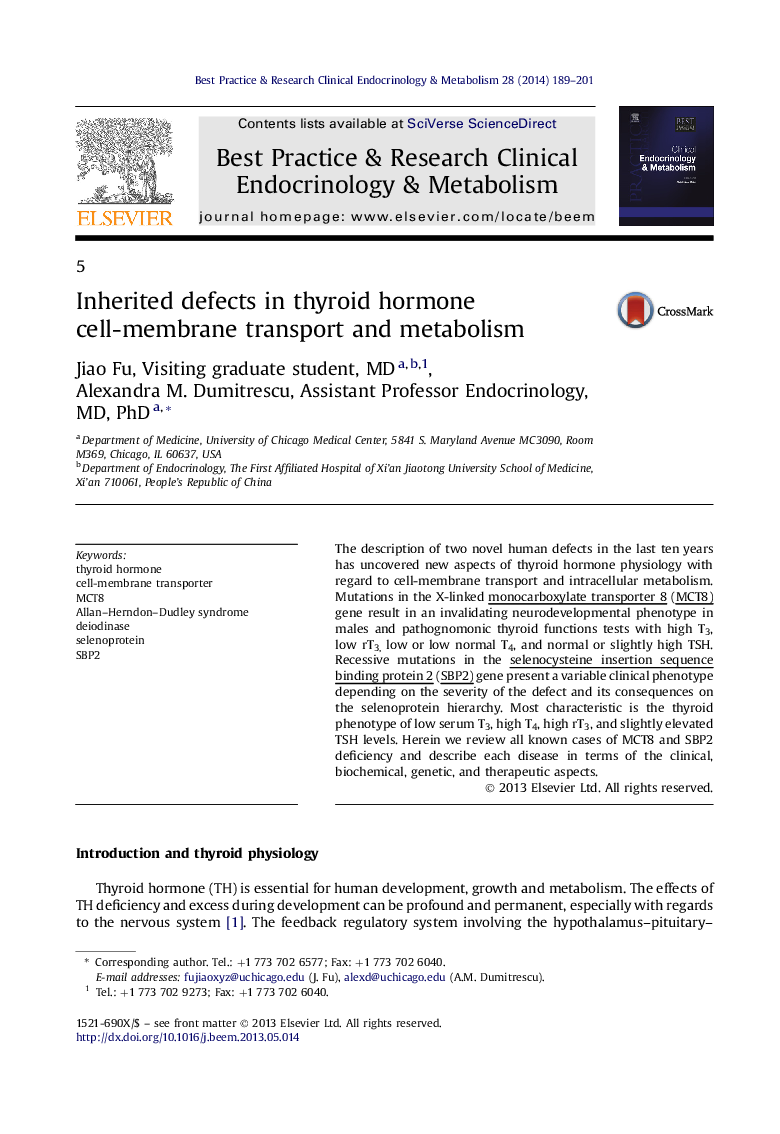| Article ID | Journal | Published Year | Pages | File Type |
|---|---|---|---|---|
| 2791640 | Best Practice & Research Clinical Endocrinology & Metabolism | 2014 | 13 Pages |
The description of two novel human defects in the last ten years has uncovered new aspects of thyroid hormone physiology with regard to cell-membrane transport and intracellular metabolism. Mutations in the X-linked monocarboxylate transporter 8 (MCT8) gene result in an invalidating neurodevelopmental phenotype in males and pathognomonic thyroid functions tests with high T3, low rT3, low or low normal T4, and normal or slightly high TSH. Recessive mutations in the selenocysteine insertion sequence binding protein 2 (SBP2) gene present a variable clinical phenotype depending on the severity of the defect and its consequences on the selenoprotein hierarchy. Most characteristic is the thyroid phenotype of low serum T3, high T4, high rT3, and slightly elevated TSH levels. Herein we review all known cases of MCT8 and SBP2 deficiency and describe each disease in terms of the clinical, biochemical, genetic, and therapeutic aspects.
